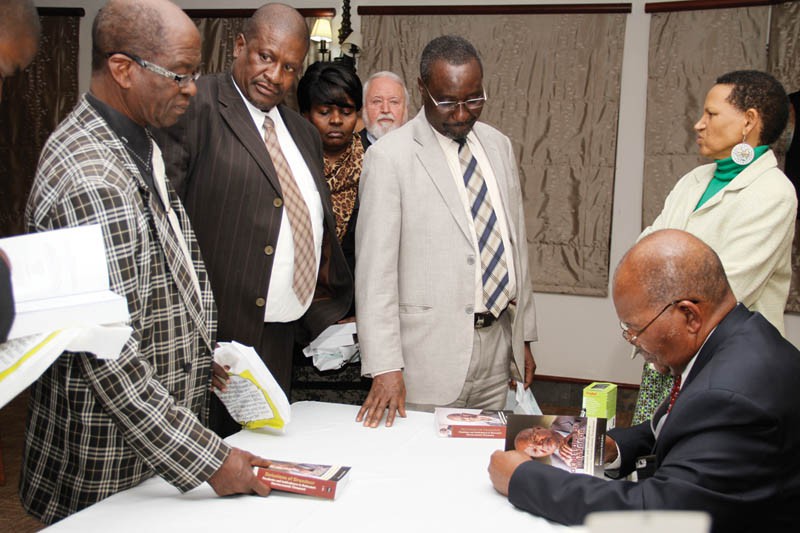Govt too suspicious of private sector, says economist
Bame Piet | Friday July 31, 2015 15:27


The book, Delusions of Grandeur (second edition) was launched in Phakalane on Wednesday night.
“There are many aspects of the business climate that could be improved, often at little cost by simple regulatory reform. But after lots of interaction with different government bodies, I have concluded that government doesn’t understand and trust the private sector. As a result it wishes to keep a tight grip on what companies do,” he said.
Jefferis, who is the former deputy governor of Bank of Botswana and managing director of Econsult Botswana, said due to poor coordination and lack of commitment on government’s part, some companies survive on government tenders to keep afloat for a year, which he argued, is not how an economy should be run.
Jefferis also said the problem is compounded by the anti-foreigner attitude that results in counter-productivity. He said the immigration point system has made matters worse, it to has fallen on people with a wrong attitude towards foreigners, saying they are using the system to deport, and deny foreigners entry into the country.
The economist also said he was appalled that there is shortage of land for housing, yet the country has vast portions of land and a small population.
Jefferis cited small countries like Singapore, and Hong Kong, which have very little land but have managed to equitably distribute it among their huge populations.
“Land reform is a very sensitive topic in this country for obvious reasons. But I think it is the current systems of land tenure and land administration that have totally failed the economic needs of the country. We have incredibly inefficient use of land,” he said.
Jefferis also warned that corruption is increasingly becoming a problem in Botswana.
For his part, Magang said he was hopeful that unlike the first volume, the media and academia will keenly and exhaustively engage Volume two of his book.
He also encouraged journalists to share excerpts of his book with ordinary Batswana who cannot afford the book.
Magang said he was disappointed that most economists, academics and institutions of higher learning had failed to engage him.
“I am disappointed. It is they who I expected to probe the book with a toothcomb, to interrogate it extensively. I expected them not just to extol it but to point out its shortcomings, to identify if there were any crucial issues that were not dealt with adequately, to point out its statistical lapses if there were any,” he said.
The businessman also said that when he embarked upon the book, the audience he had in mind were the schooling youth, the intelligentsia, policy makers, “and of course posterity – the leaders of tomorrow”.
Magang acknowledged that the book was expensive because of printing costs, but said they are in the process of constructing a website to improve access to the book.
“A website to facilitate purchase of both the hard and electronic versions of the book is under construction.
We are also in the process of approaching Choppies and other chain stores, with a view to have the book stocked in all their outlets across the country so that even people in far-flung areas can have the convenience of buying a copy right in their vicinities,” he said.
